MercoPress. South Atlantic News Agency
Tag: Ross Sea
-
Monday, October 20th 2014 - 21:56 UTC
AOA calls on CCAMLR to agree on marine protection of the Ross Sea and East Antarctica
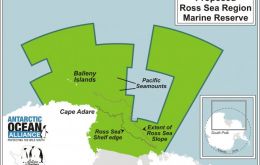
As representatives of the 25 Members of the Commission for the Conservation of Antarctic Marine Living Resources (CCAMLR) meet this week in Hobart, where they will decide the fate of two key protection proposals in the Ross Sea and East Antarctica, the Antarctic Ocean Alliance (AOA) (*) called on the member countries to honor their conservation commitments and finally agree to lasting and significant Southern Ocean protection.
-
Thursday, September 18th 2014 - 02:55 UTC
NZ scientists examine giant squid caught in Antarctica' Ross Sea
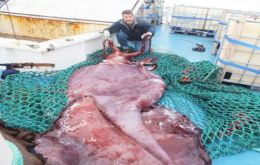
It was a calm morning in Antarctica's remote Ross Sea, during the season when the sun never sets, when Capt. John Bennett and his crew hauled up a creature with tentacles like fire hoses and eyes like dinner plates from a mile below the surface. A colossal squid: 350 kilograms, as long as a minibus and one of the sea’s most elusive species.
-
Sunday, November 3rd 2013 - 12:07 UTC
Russia, Ukraine, China block plans in CCAMLR to create Antarctica marine reserves

Russia, Ukraine and China are being blamed for a failure of plans to protect almost 3 million square kilometers of ocean in Antarctica. After two weeks of discussions behind closed doors, the Conservation of Antarctic Marine Living Resources (CCAMLR) has failed to come to an agreement on new marine reserves.
-
Monday, October 21st 2013 - 19:42 UTC
Fears that proposal for MPA in the Ross Sea will again succumb at CCAMLR
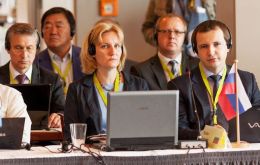
The world's biggest marine reserve in Antarctica may have to be given an expiry date to get countries with interests in the prized waters to agree to it. Delegations from 25 nations are resuming in Tasmania a New Zealand-US proposal for a marine protected area (MPA) in the fish-rich Ross Sea, 3500km south of New Zealand.
-
Wednesday, July 17th 2013 - 19:35 UTC
Russia blocks creation of two huge Marine Protected Areas in Antarctica
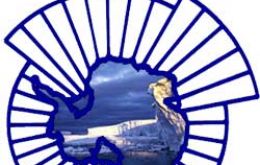
An extraordinary meeting of the Commission of Antarctic Marine Living Resources (CCAMLR) to establish Marine Protected Areas (MPA) in the Ross Sea region and in East Antarctica wrapped up on Tuesday without an agreement after Russia with support from Ukraine blocked the initiative.
-
Wednesday, April 18th 2012 - 17:52 UTC
IAATO increasingly concerned on recent yacht related incidents in Antarctic waters
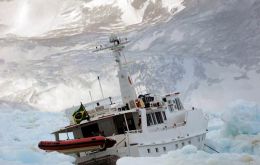
Recent incidents and sightings involving yachts in Antarctic waters have generated considerable interest and concern among the members of the International Association of Antarctica Tour Operators (IAATO).
-
Saturday, April 7th 2012 - 06:53 UTC
Russian yacht goes missing in Antarctica en route to South Shetlands

The Scorpius yacht with a Russian-Ukrainian crew on board has gone missing off the Antarctic coast while performing a polar circumnavigation voyage, the expedition’s press service said on Friday.
-
Saturday, December 17th 2011 - 06:06 UTC
NZ Air Force to the rescue of Russian fishing vessels caught in Antarctic ice
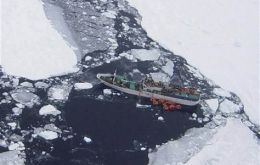
A Royal New Zealand Air Force C130 Hercules is making an emergency flight, laden with life-saving supplies, for sinking Russian fishing vessel Sparta stranded in Antarctica.
-
Thursday, November 3rd 2011 - 00:11 UTC
International coalition promotes network of Antarctica marine protected areas

A new international coalition is working to set up a network of designated marine protected areas (MPA) and no-take marine reserves in the oceans surrounding Antarctica.
-
Wednesday, March 2nd 2011 - 06:44 UTC
New Zealand incorporates second Antarctic patrol vessel with flying colours
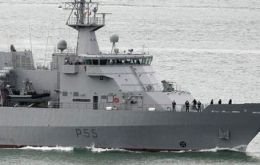
New Zealand’s newest offshore patrol vessel and its crew experienced all Antarctica could throw at them during the past three weeks and passed with flying colours, the navy says.
